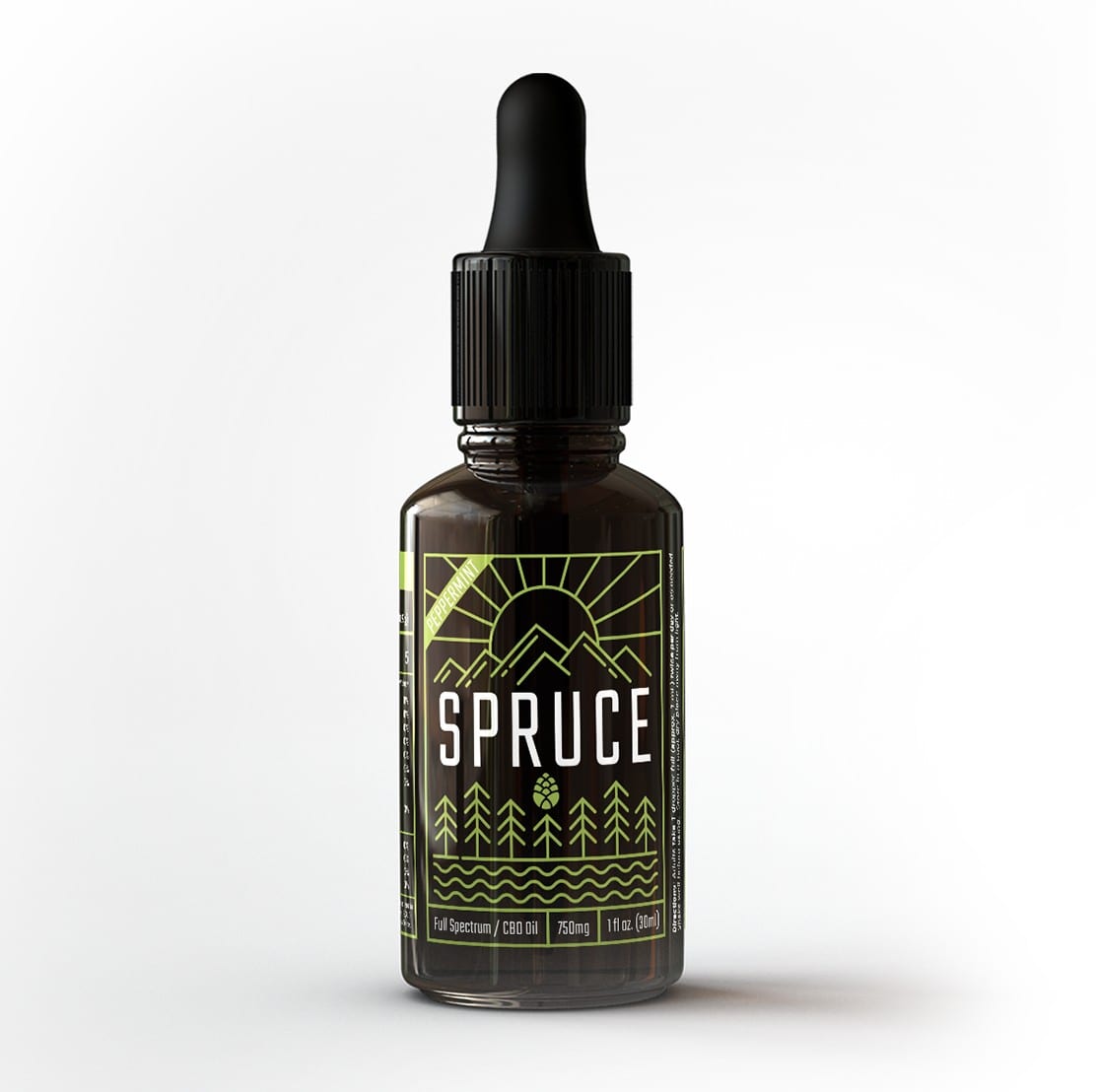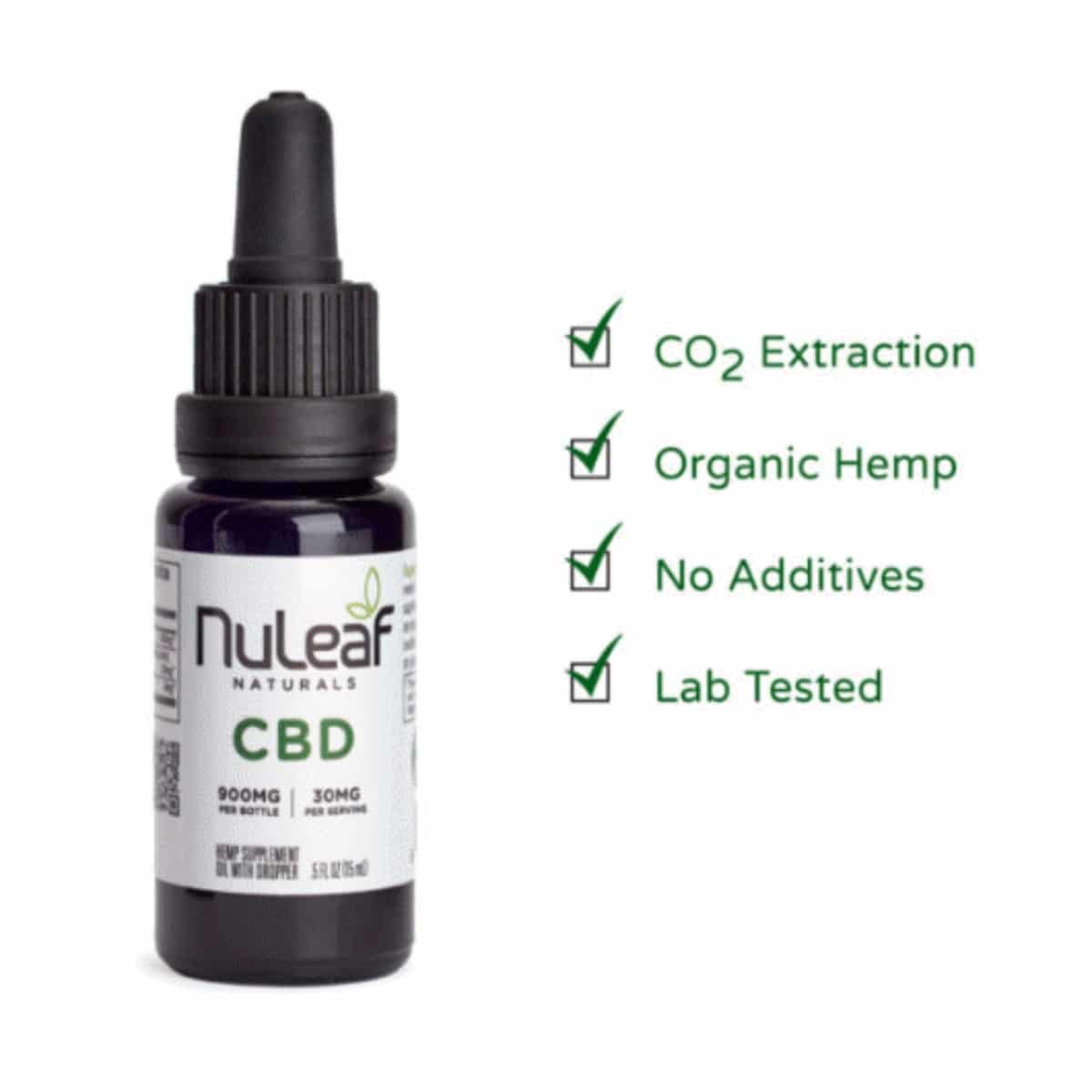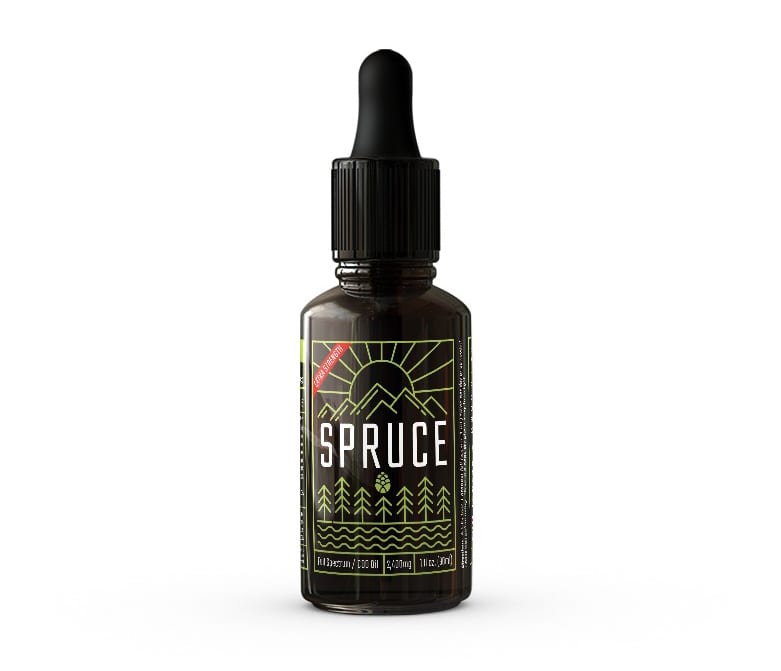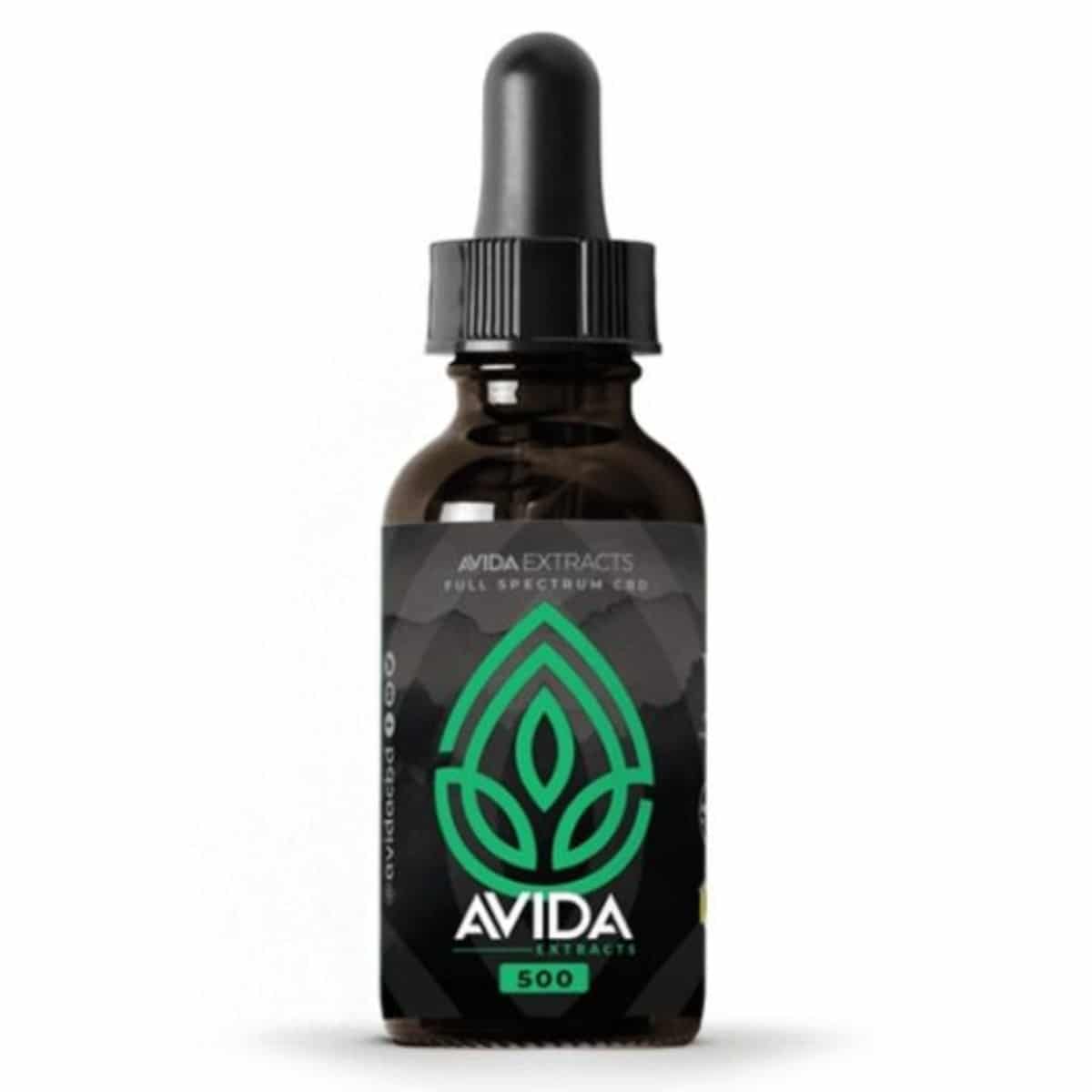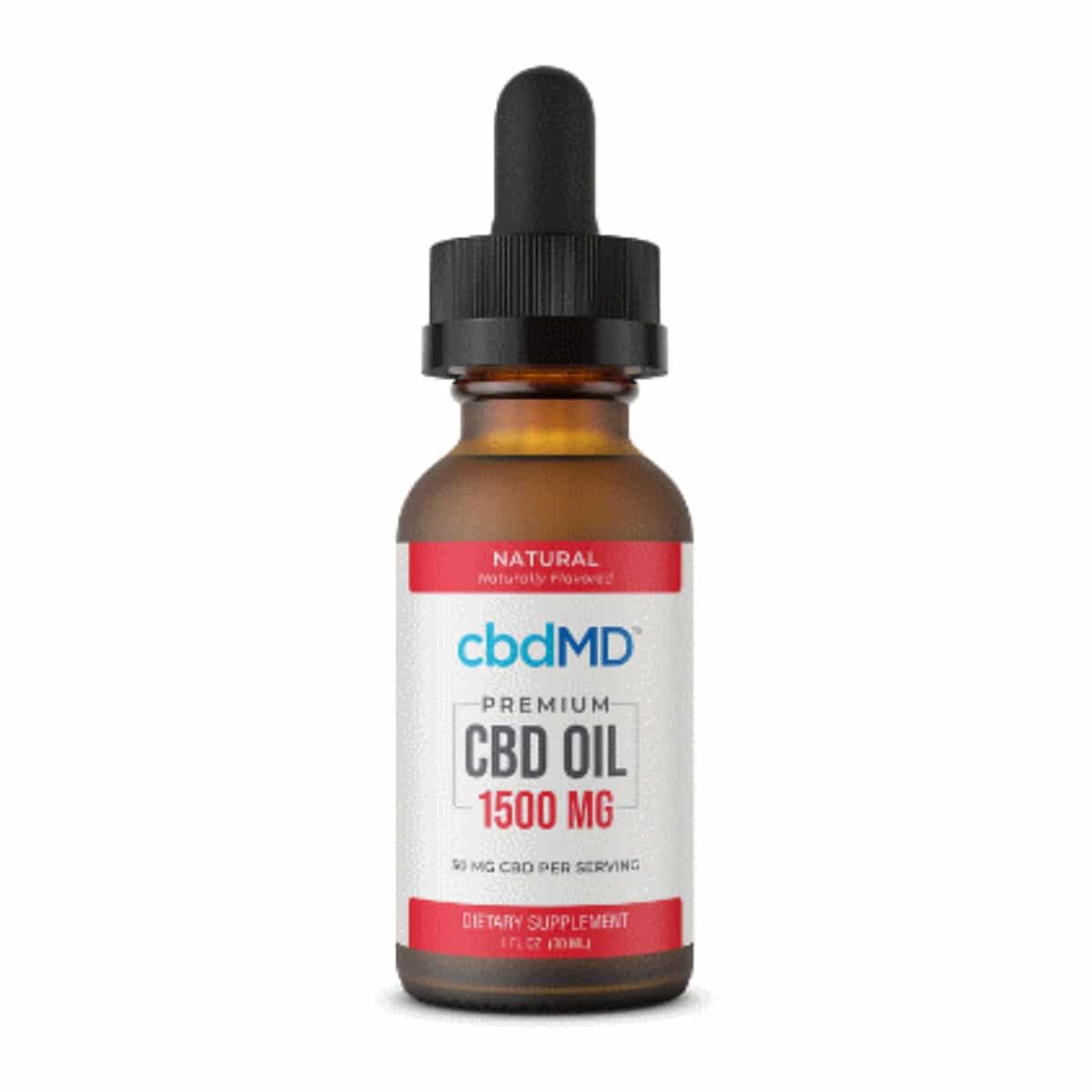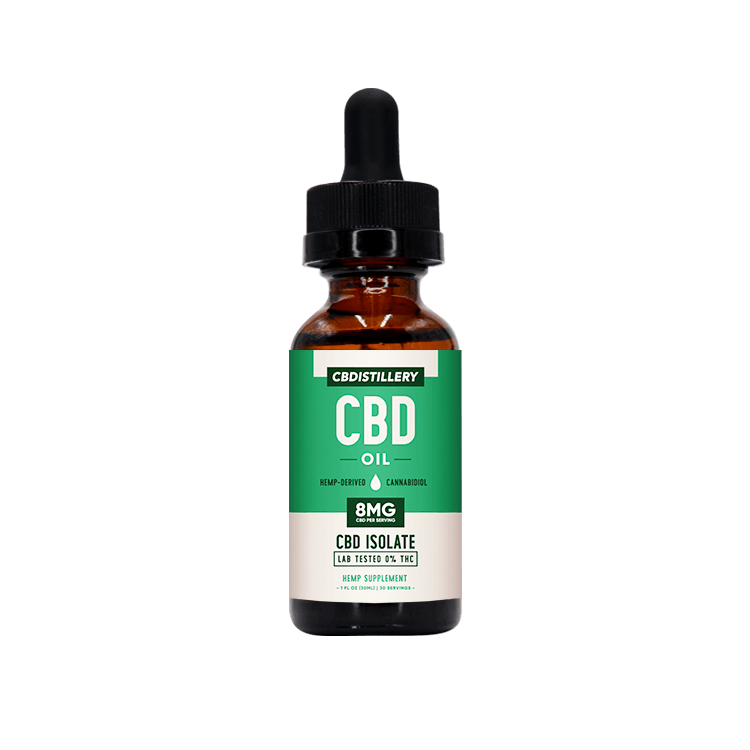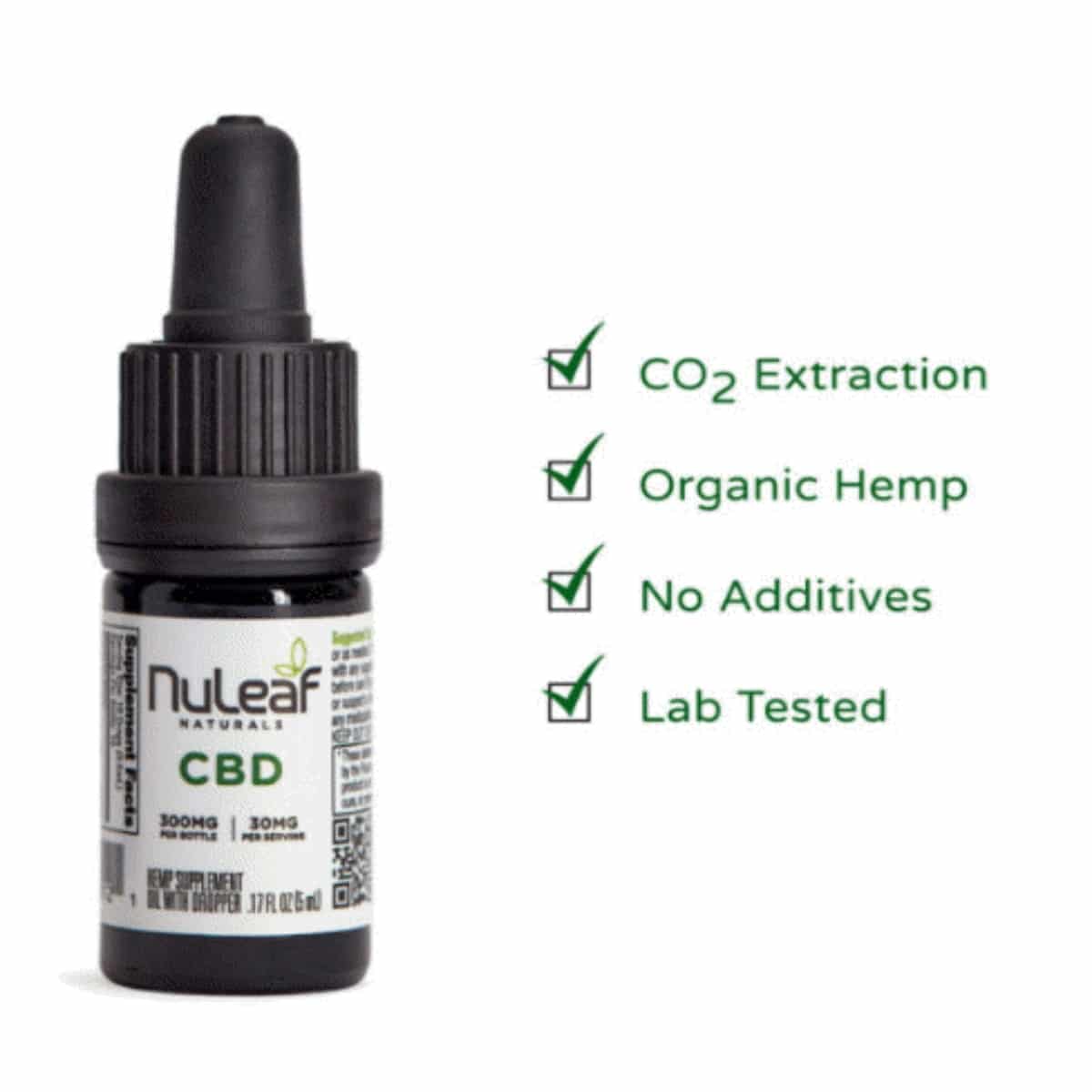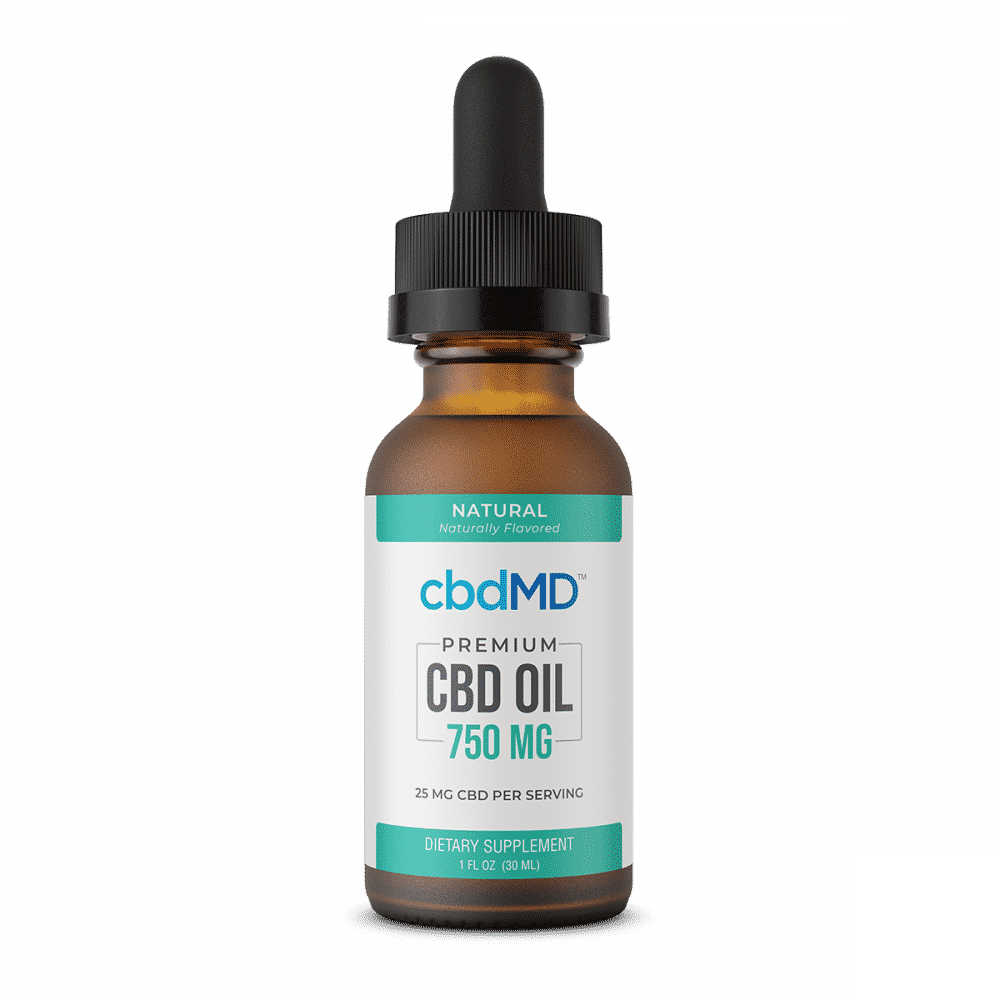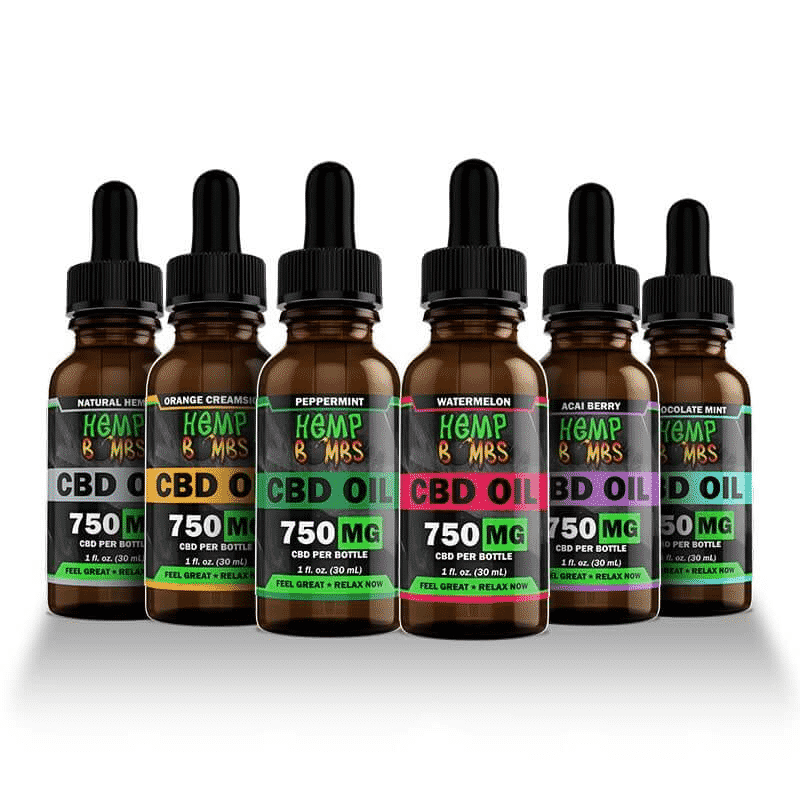Best CBD Oil for Dementia
Is your prescribed medication for dementia giving you undesirable side effects? Find out the best cannabidiol (CBD) oils you can use as an alternative for managing dementia-related symptoms and conditions.
Best CBD Oil for Dementia 2025
- Spruce 750mg Lab Grade CBD Oil Editor's Pick
- NuLeaf Naturals 900mg Full Spectrum Hemp CBD Oil Best Organic
- Spruce 2400mg Lab Grade CBD Oil Editor's Pick
- Avida Full Spectrum CBD Oil Tincture 500mg Best Seller
- cbdMD CBD Oil Tincture Natural 1500mg Best Natural Alternative
- CBDistillery THC Free CBD Oil Tinctures Best THC-Free
- cbdMD CBD Oil Tincture Natural 750mg Best Customer Rated
- NuLeaf Naturals 300mg Full Spectrum Hemp CBD Oil Best Starter
- Hemp Bombs 750mg CBD Oil Best Flavor Range
Compare the Best CBD Oils for Dementia in 2022
Best CBD Oil for Dementia
1. Spruce 750mg Lab Grade CBD Oil
cbdc overall score
4.8
CBDC Evaluation Table/Score
| Pros | Cons |
|---|---|
|
Mid-strength |
No other flavors |
|
Natural peppermint flavor |
|
|
Made from 100% organic and natural ingredients |
Overview
Each bottle of the 750mg CBD oil tincture contains 25mg of CBD per dropper full. The oil is peppermint flavor to mask any unpleasant tastes related to CBD.
2. NuLeaf Naturals 900mg Full Spectrum Hemp CBD Oil
cbdc overall score
5.0
CBDC Evaluation Table/Score
| Pros | Cons |
|---|---|
|
Pure CBD hemp |
No other flavors |
|
All natural |
|
|
Approximately 300 drops total |
Overview
Natural remedy for various illnesses. NuLeaf Naturals’ CBD oil is a whole-plant extract containing a full spectrum of naturally occurring synergistic cannabinoids and terpenes.
3. Spruce 2400mg Lab Grade CBD Oil
cbdc overall score
5.0
CBDC Evaluation Table/Score
| Pros | Cons |
|---|---|
|
Extra Strength |
Tastes bitter |
|
No artificial flavoring or colors |
No THC-free option |
|
Made from 100% organic and natural ingredients |
Overview
The largest bottle of CBD oil that Spruce offers contains 2,400mg of CBD. This is full-spectrum CBD oil, which is the maximum possible potency. Each high potency dropper full contains 80mg of CBD. There are no flavorings in it, which allows for the most CBD to fit in the 30ml bottle.
4. Avida Full Spectrum CBD Oil Tincture 500mg
cbdc overall score
4.6
CBDC Evaluation Table/Score
| Pros | Cons |
|---|---|
|
Light Spearmint flavor |
No other flavor |
|
Non-THC, Non-detected in drug test |
Overview
Avida Extracts Full Spectrum CBD oil is the latest iteration of the brand’s advanced Avida CORE Spectrum technology. They use a proprietary full spectrum blend, resulting in the highest naturally occurring Phyto-cannabinoids and Terpenes with THC (<0.3) to support your health.
5. cbdMD CBD Oil Tincture Natural 1500mg
cbdc overall score
4.7
CBDC Evaluation Table/Score
| Pros | Cons |
|---|---|
|
Various delicious flavors to choose from |
cbdMD uses MCT as its carrier oil so individuals who are allergic with coconuts should consider other brand options |
|
Has vegan, organic, and gluten-free ingredients |
|
|
Free shipping for this particular product within USA |
|
|
World-class customer service team |
Overview
cbdMD’s CBD oil tinctures are made using only CBD sourced from medical hemp and MCT oil as a carrier oil. Tinctures are offered in orange, mint, natural, and berry flavors. Safe for daily use, the oil tinctures are packaged with a built-in rubber dropper to adjust CBD dosage easily. The packaging is made to be easy to transport and discreet to use.
6. CBDistillery THC Free CBD Oil Tinctures
cbdc overall score
4.4
CBDC Evaluation Table/Score
| Pros | Cons |
|---|---|
|
60-Day Satisfaction Guarantee |
Dropper is a bit shaky |
|
Various strengths |
|
|
Oil extracted from aerial plant parts of US grown industrial hemp |
|
|
Sourced from non-GMO industrial hemp grown in the USA through natural farming practices |
Overview
CBDistillery’s Isolate CBD Oil Tinctures harness the power of pure CBD. CBD Isolate Oil Tinctures include 0.0% THC. When you use CBDistillery CBD Isolate Oil Tinctures, you can be assured you’re using the highest quality CBD on the market.
7. NuLeaf Naturals 300mg Full Spectrum Hemp CBD Oil
cbdc overall score
4.6
CBDC Evaluation Table/Score
| Pros | Cons |
|---|---|
|
Pure CBD hemp |
No other flavors |
|
All natural |
A bit pricey compared to competitors |
|
Approximately 100 drops total |
Overview
This is one of several concentrations from NuLeaf Naturals. As the lowest concentration, it is the company’s best option for those new to CBD oil. The product is lab-tested and fully organic. It is full-spectrum, so it contains THC in small quantities.
8. cbdMD CBD Oil Tincture Natural 750mg
cbdc overall score
4.4
CBDC Evaluation Table/Score
| Pros | Cons |
|---|---|
|
Vegan and Gluten free |
Does not ship internationally |
|
Has a third-party lab test |
|
|
Wide variety of CBD strengths and sizes |
Overview
A 750mg bottle of cbdMD’s Broad Spectrum Oil Tincture does not contain THC. It also has a fairly wide flavor range which is perfect for those who prefer other taste. Vegan consumers are considered since cbdMD offers Vegan products. Aside from all of that, another reason why people love cbdMD is because it’s free from harmful chemicals.
9. Hemp Bombs 750mg CBD Oil
cbdc overall score
3.9
CBDC Evaluation Table/Score
| Pros | Cons |
|---|---|
|
Wide variety of flavors |
Incomplete information about the product |
|
Lab test results are complete |
Does not ship to all international countries |
|
30-day money-back guarantee |
Overview
Hemp Bombs offer CBD Oil Tinctures that come in a 30ml bottle containing 750mg of CBD. They provide a wide range of flavors perfect for those that have a knack for sweets. Consumers can safely intake this because it’s free of chemicals and pesticides. Hemp Bombs also offer a 20% off on products upon subscription.
How CBD Helps With Dementia
A 2017 study noted that CBD possesses anti-inflammatory and antioxidant properties that may help with dementia. Researchers also noted how CBD acts as a neuroprotectant to improve various brain functions(1).
There are many types of dementia, like Alzheimer’s disease, vascular dementia, Lewy body dementia, Parkinson’s disease, Huntington’s disease, and frontotemporal dementia(2).
CBD’s potential to manage dementia is realized through its interaction with the endocannabinoid system (ECS), a system responsible for essential biological functions(3). The ECS consists of two central cannabinoid receptors, CB1 and CB2.
CB1 receptors are responsible for cognitive functions, including movement, thinking, memories, and mood. Meanwhile, CB2 receptors affect pain and inflammation.
A study was conducted on ten dementia patients with severe behavior problems. Patients were given a combination of two phytocannabinoids, CBD and tetrahydrocannabinol (THC)(4).
CBD and THC both come from the cannabis plant. However, CBD is non-psychoactive, while THC generates a high among users.
Based on the researchers’ findings, higher doses of CBD and THC improved the patients’ behavior problems. Patients also reported improvements in dementia symptoms, like muscle rigidity.
In one study on Alzheimer’s, a common form of dementia, it was found that CBD’s anti-inflammatory properties reduced critical elements in reactive gliosis(5).
In gliosis, glial cells undergo a reactive change in response to damage in the central nervous system (CNS). Glial cells are the most abundant cells in the CNS, which surround, support, and provide insulation between neurons(6).
CBD has been shown to reduce the negative impact of inflammation, oxygen buildup, and brain cell decline(7).
Another study outlined CBD’s potential to prevent the production of large membrane proteins called amyloid-beta proteins(8). These proteins are essential for neural growth and repair.
However, later in life, a corrupted form of amyloid-beta proteins can destroy synapses and eventually result in nerve cell death. This cell death leads to the loss of thought and memory in Alzheimer’s disease(9).
According to the researchers, CBD may help suppress gene production related to Alzheimer’s.
Benefits of CBD Oil for Dementia
Several studies have suggested that CBD might have therapeutic benefits to the nervous system and its brain cells.
CBD vs. Neuroinflammation
According to a 2018 review of animal and human research data, CBD has anti-inflammatory properties that may reduce neuroinflammation(10). The study also demonstrated that CBD may decrease inflammatory cytokine production.
Cytokines are signaling molecules that help in cell-to-cell communication in immune responses. These molecules are also responsible for the cells’ movement towards infection, trauma, and inflammation sites in the body(11).
CBD vs. Oxidative Stress
A study on mice revealed that CBD possesses antioxidant, anti-inflammatory, and neuroprotective effects on oxidative stress. CBD also helps modulate glial cells and prevents the death of nerve cells(12).
Oxidative stress is an imbalance that occurs when oxidants (reactive molecules that may cause inflammation) outnumber antioxidants (substances that protect cells from damage)(13).
Oxidative stress is a major cause of different neurodegenerative diseases, specifically vascular dementia and Alzheimer’s. This imbalance is also linked to Parkinson’s disease and Huntington’s disease.
CBD and Brain Stimulation
According to a 2017 study found in the Frontiers in Pharmacology journal, CBD promotes hippocampal neurogenesis or the production of new neurons in the hippocampus(14).
Hippocampus is part of the brain that gets damaged by dementia. Hippocampal neurogenesis significantly decreases in patients with Alzheimer’s disease(15).
A study on the treatment of Alzheimer’s suggested that the long-term use of CBD may help prevent the development of social recognition memory impairments in rodent subjects(16).
The study also highlighted CBD’s antioxidant, neuroprotective, and anti-inflammatory properties. According to the researchers, CBD’s neuroprotective properties are related to its ability to reduce inflammation and oxidative stress.
Another study was conducted on patients with Parkinson’s to demonstrate CBD’s efficacy in treating psychosis associated with the disease(17).
The test subjects were given a flexible CBD dose for four weeks, starting with an oral dose of 150mg CBD per day.
CBD may be useful in treating psychosis in patients with Parkinson’s disease. During the clinical trial, the test subjects did not experience any adverse side effects.
CBD vs. Nightmares
A study found that CBD may improve sleep-related conditions associated with rapid eye movement (REM) sleep behavior disorder (RBD) in patients with Parkinson’s disease(18).
RBD is associated with low sleep quality and nightmares. Other sleep-related conditions include active behavior when one is dreaming and paralysis of muscles during nightmares.
CBD and Cognitive Functions
A 2018 study has noted that CBD’s long-term medical use may result in improved cognition, particularly in verbal learning, memory, and attentional switching(19).
Meanwhile, results from multiple impairment studies on patients with schizophrenia showed CBD’s potential to improve cognition(20). Preclinical models of cognitive impairment include Alzheimer’s disease, neuro-inflammatory disorders, and neurological disorders.
CBD vs. Anxiety and Depression
People with dementia may also experience anxiety and depression(21). According to a 2018 study published in Frontiers in Immunology, CBD has the potential ability to alleviate the symptoms of depression(22).
The researchers noted that CBD’s anxiety-reducing and antipsychotic effects may help with symptoms of epilepsy, social phobia, schizophrenia, bipolar disorder, and Parkinson’s disease.
A study also reported that CBD has anxiolytic (anti-anxiety) effects that may help with anxiety disorders, such as generalized anxiety disorder, social anxiety disorder, panic disorder, obsessive-compulsive disorder, and post-traumatic stress disorder(23).
CBD Dosage and Delivery Methods for Dementia
Dosage
Based on a 2017 review, there is no standard CBD dosage chart for any specific medical condition, like dementia(24). The review also noted that humans and animals respond uniquely to different doses of CBD.
The general rule for dosing with CBD is to begin with small amounts, especially if you are taking it for the first time.
It is essential to take note of your body’s reaction to CBD. If there are no adverse effects observed, you may gradually increase the dosage to maximize CBD’s potential health benefits.
It is recommended to start with a small dose of 1mg to 2mg CBD daily for one week. Then, increase the dosage by 2mg to 3mg CBD weekly until you notice significant symptom improvements(25).
The CBD dosage should be based on the patient’s body weight—the heavier the individual, the larger their dose. The standard dose for average adults is approximately a maximum of 5mg.
Before adding CBD to their medication regimen, dementia patients or their family members should consult a doctor.
Methods of Delivery
You can find various forms of CBD products on the market. For people with dementia, it is recommended to administer CBD in gelcap form(26).
Compared to CBD tinctures, gelcaps help in the administration of consistent amounts of CBD. Elderly patients may also feel more familiar with swallowing pills.
Patients may also take CBD orally using other product forms, such as CBD oil, sprays, gummies, or capsules. CBD oil can be mixed with food and beverages if CBD administration to dementia patients is complicated.
You may take tinctures sublingually (under the tongue) using a dropper. Hold for 60 to 90 seconds before swallowing for more efficacy.
The sublingual method takes about 15 to 30 minutes to start taking effect in the system. Results may last up to a few hours(27).
Meanwhile, CBD oil may be used topically during massages to relieve the pain felt by patients. Various CBD topical formulations available to patients include salves, gels, lotions, balms, and creams.
It is recommended to purchase topical products that use CBD micellization, nanotechnology, or encapsulation since CBD has limited absorption when used topically(28).
The technologies and methods mentioned above guarantee that CBD, as an active ingredient, is transmitted through dermal layers and does not only stay on the skin(29).
After applying CBD topical to your skin, you may notice the effects within 30 to 90 minutes(30).
Inhaling CBD through vape oils and pens provide fast-acting effects. However, vape products are not advisable for dementia patients who are usually elderly.
Side effects of vaping include dry mouth and throat, coughing, and shortness of breath(31). Vape use may also cause lung diseases, such as collapsed lung and lipoid pneumonia(32).
CBD and Other Alternative Treatments for Dementia
People have been exploring alternative treatments for dementia, as the commonly used medications often have adverse effects. These effects may be detrimental, especially to elderly dementia patients.
Pharmaceutical medicines for dementia may cause nausea, vomiting, appetite loss, diarrhea, fatigue, muscle pain, headaches, dizziness, itchiness or rashes, sleep problems, agitation or aggression, and hallucinations(33).
Acupuncture
Several studies have explored acupuncture treatment as a potential remedy for dementia. Acupuncture is a vital component of traditional Chinese medicine believed to enhance the body’s flow of energy(34).
Unlike massage therapies that focus on stimulating the blood flow and movement in the body, acupuncture targets specific body points using thin needles(35).
According to a study published in the Evidence-Based Complementary and Alternative Medicine journal, acupuncture is more effective when used with Western and herbal medications(36).
The researchers noted that acupuncture has mixed efficacy in treating dementia and cognitive impairments.
Another study demonstrated that acupuncture elicited significant improvement in the sleep quality of elders with dementia(37). Over the treatment period, researchers observed significant gain in resting and sleep time.
The researchers found that acupuncture has a beneficial effect on the cognitive status and daily activities of dementia patients.
Herbal Supplements
Herbal supplements may also be used as an alternative treatment for dementia.
Some of the most commonly studied and used herbs include Ginkgo biloba, Huperzia serrata, Curcuma longa (turmeric), Panax ginseng, Panax notoginseng, Bacopa monnieri (water hyssop), and Camellia sinensis (tea plant)(38).
Numerous clinical trials have shown that ginkgo helps with memory loss and concentration and decreases anxiety in patients with dementia(39).
According to reports, a standard preparation of the ginkgo herb may improve neurocognition and enhance the daily activities of vascular dementia and Alzheimer’s patients(40).
CBD
Other alternative remedies may only treat a few aspects of dementia. Thus, some studies suggest that the use of cannabis-related products, like CBD, may have more advantages(41).
CBD’s neuroprotective and antipsychotic properties have the potential to alleviate the symptoms associated with dementia.
Using CBD for Dementia: Risks and Side Effects
CBD is generally well-tolerated and safe to use(42). According to the National Institute on Drug Abuse (NIDA), CBD is classified as “non-addictive(43).”
The World Health Organization (WHO) has not recorded any case of CBD dependence in humans(44). Thus, it was concluded that CBD is not a substance that has the potential for abuse.
However, risks and side effects may still occur. Possible adverse reactions to CBD may include(45):
- nausea
- fatigue
- dry mouth
- drowsiness
- diarrhea
- mood changes, like irritability
- loss of appetite
- gastrointestinal problems
- liver damage
CBD may also interact with other medications and supplements and raise their levels in the bloodstream.
The typically prescribed treatments for dementia are cholinesterase inhibitors. These inhibitors have been shown to have a modest effect on symptoms of dementia, like cognition(46).
Donepezil and galantamine are some of the most commonly used cholinesterase inhibitors. Both treatments are metabolized by a group of enzymes called cytochrome P450(47).
Caution is advised when taking CBD with dementia medications to avoid drug interactions.
Since CBD may inhibit liver enzymes, the compound has the potential to reduce the efficacy of certain dementia medications(48).
Another safety concern is CBD’s lack of regulation from the United States Food and Drug Administration (FDA). Many CBD products are being primarily marketed with unsubstantiated therapeutic claims and sold as supplements(49).
The FDA currently does not regulate the purity and safety of dietary supplements. Some CBD companies continue to sell products online without thorough testing(50).
The only FDA-approved drug derived from purified CBD is Epidiolex. This product is used to treat seizures associated with two rare forms of epilepsy, such as Lennox-Gastaut syndrome and Dravet syndrome(51).
How to Choose the Best CBD Oil for Dementia
Before buying any CBD product, it is important to know the three types: full-spectrum, broad-spectrum, and CBD isolates.
All the parts of a Cannabis sativa plant are used in a full-spectrum CBD oil. There are also trace amounts of THC, terpenes, flavonoids, fatty acids, and essential oils.
Some studies suggest that full-spectrum CBD oil is the most effective type of CBD oil because all the ingredients of the cannabis plant synergize for maximum therapeutic benefits(52). This synergistic effect is known as the entourage effect.
However, note that THC may be detected in drug tests. THC also causes psychoactive effects.
If you want to avoid the risk of getting high, broad-spectrum CBD is more recommended. Broad-spectrum CBD oil contains the same components as full-spectrum CBD except for THC.
People looking to use pure CBD or avoiding its other components due to allergies may use CBD isolates. This type of pure CBD oil is made from isolated cannabidiol.
There is a significant difference between CBD oil and hempseed oil. CBD is derived from a hemp plant’s stalks, flowers, and leaves.
Meanwhile, hempseed oil is primarily obtained from raw hemp seeds. There may be trace amounts of CBD in hempseed oil or none at all.
The other things you should consider in choosing the best CBD oil product include the following:
- Identify the CBD product’s source of hemp. The most common hemp sources include Colorado, Oregon, and Kentucky.
- Choose high-quality CBD products that are derived from non-GMO, organic hemp.
- Find out which method is used in extracting CBD oil. According to a report, CO2 extraction is recognized as a safe process and recommended by the US FDA in pharmaceutical manufacturing(53).
- CBD companies should give consumers access to third-party lab reports and analyses. Accredited third-party labs issue certifications on a CBD product’s components and quality.
- If you have a loved one with dementia, encourage them to consult with a medical professional first before letting them use any CBD product.
- Before purchasing from a retailer or dispensary, ensure that CBD’s sale or use is legal in your state.
- Make sure to research the CBD brand and check reviews from other customers when purchasing online.
Legality of CBD
When the 2018 Farm Bill was passed, hemp-derived CBD containing less than 0.3% THC became legal(54). This bill also allowed the growth, production, and manufacturing of hemp on the federal level.
Although CBD is easily accessible in many parts of the United States, state laws may have varying degrees of restriction.
Some states have laws permitting cannabis oil with a high concentration of THC(55). Under a state’s medical marijuana program, patients with qualifying conditions may have legal access to medical cannabis(56).
Medical marijuana patients may require an official diagnosis and prescription from a licensed physician.
Product Frequently
Asked Questions
-
How can CBD help with dementia?
Recent studies have shown that CBD may help with dementia by reducing inflammation, stimulating the brain, and protecting the nervous system(57).
-
What are the benefits of using CBD oil for dementia?
CBD has anti-inflammatory, antioxidant, and neuroprotective effects that may help with dementia-related symptoms and conditions. The most common forms of dementia include Alzheimer’s disease and vascular dementia(58).
-
Is there any evidence that CBD can make my dementia worse?
A study found that CBD may worsen hypokinesia (a movement disorder) and resting tremor. Slow movement and tremors are symptoms associated with dementia(59).
-
Will CBD interact with any current medications I may be taking for dementia?
CBD has the potential to interact with some dementia medications, such as cholinesterase inhibitors. Examples of these inhibitors are donepezil and galantamine, which are metabolized by cytochrome P450(60).
-
Are there other treatments I should consider taking alongside CBD to help with dementia?
People with dementia may consider other natural alternatives, including acupuncture and herbal supplements, like Ginkgo biloba and ginseng.
-
What are the risks and side effects of CBD?
CBD’s possible side effects may include nausea, fatigue, dry mouth, diarrhea, drowsiness, changes in mood and alertness, changes in appetite, gastrointestinal problems, and liver damage(61).
CBD may also interact with other dietary supplements and prescribed medications(62).
-
Can I fail a drug test if I use CBD for dementia?
Trace amounts of THC in CBD oil may not be detectable in a drug test. However, THC may accumulate in the body over time, resulting in a failed drug test(63).
-
What is the CBD dosage for dementia?
There is no standard dosage of CBD for medical conditions, such as dementia(64). It is recommended to start taking low doses and gradually increase the amount if no adverse effects are observed.
-
Will I notice benefits right away when I use CBD for dementia?
According to a study, CBD with THC was found to delay the progression of dementia-related conditions, like Alzheimer’s(65). CBD’s benefits for dementia are more focused on improving patients’ quality of life in the long-term rather than providing immediate relief.
- Watt, Georgia, and Tim Karl. “In vivo Evidence for Therapeutic Properties of Cannabidiol (CBD) for Alzheimer’s Disease.” Frontiers in pharmacology vol. 8 20. 3 Feb. 2017, doi:10.3389/fphar.2017.00020
- Gimigliano, R., Moretti, A., Gimigliano, F., Mazzola, A., & Iolascon, G. (2018). Rehabilitation of Older Patients with Mental Disorders. In Rehabilitation Medicine for Elderly Patients (pp. 407-419). Springer, Cham.
- Manzanares, J., Julian, M., & Carrascosa, A. (2006). Role of the cannabinoid system in pain control and therapeutic implications for the management of acute and chronic pain episodes. Current Neuropharmacology, 4(3), 239–257. https://doi.org/10.2174/157015906778019527
- Broers B, Pata Z, Mina A, Wampfler J, de Saussure C, Pautex S. Prescription of a THC/CBD-Based Medication to Patients with Dementia: A Pilot Study in Geneva. Med Cannabis Cannabinoids. 2019;2(1):56–59.
- Watt, G. op. cit.
- Zhang, S. C. (2001). Defining glial cells during CNS development. Nature Reviews Neuroscience, 2(11), 840-843.
- Karl, T., Cheng, D., Garner, B., & Arnold, J. C. (2012). The therapeutic potential of the endocannabinoid system for Alzheimer’s disease. Expert opinion on therapeutic targets, 16(4), 407-420.
- Libro, Rosaliana et al. “Cannabidiol Modulates the Expression of Alzheimer’s Disease-Related Genes in Mesenchymal Stem Cells.” International journal of molecular sciences vol. 18,1 26. 23 Dec. 2016, doi:10.3390/ijms18010026
- Goldman, Bruce. “Scientists Reveal How Beta-Amyloid May Cause Alzheimer’s.” News Center, 19 Sept. 2013, med.stanford.edu/news/all-news/2013/09/scientists-reveal-how-beta-amyloid-may-cause-alzheimers.html#:~:text=Scientists%20at%20the%20Stanford%20University,lead%20to%20nerve%20cell%20death.
- Maroon, Joseph, and Jeff Bost. “Review of the neurological benefits of phytocannabinoids.” Surgical neurology international vol. 9 91. 26 Apr. 2018, doi:10.4103/sni.sni_45_18
- Turner, M. D., Nedjai, B., Hurst, T., & Pennington, D. J. (2014). Cytokines and chemokines: at the crossroads of cell signalling and inflammatory disease. Biochimica et Biophysica Acta (BBA)-Molecular Cell Research, 1843(11), 2563-2582.
- Ferreira-Junior, Nilson C et al. “Biological bases for a possible effect of cannabidiol in Parkinson’s disease.” Revista brasileira de psiquiatria (Sao Paulo, Brazil : 1999) vol. 42,2 (2020): 218-224. doi:10.1590/1516-4446-2019-0460
- Huang, Wen-Juan et al. “Role of oxidative stress in Alzheimer’s disease.” Biomedical reports vol. 4,5 (2016): 519-522. doi:10.3892/br.2016.630
- Campos, Alline C et al. “Plastic and Neuroprotective Mechanisms Involved in the Therapeutic Effects of Cannabidiol in Psychiatric Disorders.” Frontiers in pharmacology vol. 8 269. 23 May. 2017, doi:10.3389/fphar.2017.00269
- Moreno-Jiménez, E.P., Flor-García, M., Terreros-Roncal, J. et al. Adult hippocampal neurogenesis is abundant in neurologically healthy subjects and drops sharply in patients with Alzheimer’s disease. Nat Med 25, 554–560 (2019). https://doi.org/10.1038/s41591-019-0375-9
- Cheng, David et al. “Long-term cannabidiol treatment prevents the development of social recognition memory deficits in Alzheimer’s disease transgenic mice.” Journal of Alzheimer’s disease: JAD vol. 42,4 (2014): 1383-96. doi:10.3233/JAD-140921
- Zuardi, AW, et al. “Cannabidiol for the Treatment of Psychosis in Parkinson’s Disease.” Journal of Psychopharmacology, vol. 23, no. 8, Nov. 2009, pp. 979–983, doi:10.1177/0269881108096519.
- Chagas, M H N et al. “Cannabidiol can improve complex sleep-related behaviours associated with rapid eye movement sleep behaviour disorder in Parkinson’s disease patients: a case series.” Journal of clinical pharmacy and therapeutics vol. 39,5 (2014): 564-6. doi:10.1111/jcpt.12179
- Solowij, Nadia et al. “Therapeutic Effects of Prolonged Cannabidiol Treatment on Psychological Symptoms and Cognitive Function in Regular Cannabis Users: A Pragmatic Open-Label Clinical Trial.” Cannabis and cannabinoid research vol. 3,1 21-34. 1 Mar. 2018, doi:10.1089/can.2017.0043
- Osborne, Ashleigh L et al. “A systematic review of the effect of cannabidiol on cognitive function: Relevance to schizophrenia.” Neuroscience and biobehavioral reviews vol. 72 (2017): 310-324. doi:10.1016/j.neubiorev.2016.11.012
- Korczyn, A. D., & Halperin, I. (2009). Depression and dementia. Journal of the neurological sciences, 283(1-2), 139-142.
- Crippa, José A et al. “Translational Investigation of the Therapeutic Potential of Cannabidiol (CBD): Toward a New Age.” Frontiers in immunology vol. 9 2009. 21 Sep. 2018, doi:10.3389/fimmu.2018.02009
- Blessing, Esther M et al. “Cannabidiol as a Potential Treatment for Anxiety Disorders.” Neurotherapeutics: the journal of the American Society for Experimental NeuroTherapeutics vol. 12,4 (2015): 825-36. doi:10.1007/s13311-015-0387-1
- Iffland, K., & Grotenhermen, F. (2017). An Update on Safety and Side Effects of Cannabidiol: A Review of Clinical Data and Relevant Animal Studies. Cannabis and cannabinoid research, 2(1), 139–154. https://doi.org/10.1089/can.2016.0034
- Machado Bergamaschi, M., Helena Costa Queiroz, R., Waldo Zuardi, A., & Crippa, A. S. (2011). Safety and side effects of cannabidiol, a Cannabis sativa constituent. Current drug safety, 6(4), 237-249.
- ClinicalTrials.gov. Effects of THC-Free CBD Oil on Agitation in Patients With Alzheimer’s Disease. Retrieved from: https://clinicaltrials.gov/ct2/show/NCT04436081
- Huestis, M. A. (2007). Human cannabinoid pharmacokinetics. Chemistry & biodiversity, 4(8), 1770.
- Bruni, N., Della Pepa, C., Oliaro-Bosso, S., Pessione, E., Gastaldi, D., & Dosio, F. (2018). Cannabinoid delivery systems for pain and inflammation treatment. Molecules, 23(10), 2478.
- Ibid.
- Taskar, P., Adelli, G., Patil, A., Lakhani, P., Ashour, E., Gul, W., … & Majumdar, S. (2019). Analog derivatization of cannabidiol for improved ocular permeation. Journal of Ocular Pharmacology and Therapeutics, 35(5), 301-310.
- Farsalinos, K. E., Romagna, G., Tsiapras, D., Kyrzopoulos, S., & Voudris, V. (2014). Characteristics, perceived side effects and benefits of electronic cigarette use: a worldwide survey of more than 19,000 consumers. International journal of environmental research and public health, 11(4), 4356-4373.
- Broderick, S. (2020). What Does Vaping Do to Your Lungs? Johns Hopkins Medicine. https://www.hopkinsmedicine.org/health/wellness-and-prevention/what-does-vaping-do-to-your-lungs
- “Dementia Drugs: Understanding Common Side Effects and How They May Affect the Heart.” Alzheimer’s Society, 6 Sept. 2018, www.alzheimers.org.uk/blog/dementia-drugs-understanding-common-side-effects-and-how-they-may-affect-heart.
- Barnes, P. M., Powell-Griner, E., McFann, K., & Nahin, R. L. (2004, June). Complementary and alternative medicine use among adults: United States, 2002. In Seminars in integrative medicine (Vol. 2, No. 2, pp. 54-71). WB Saunders.
- Ibid.
- Chan-Young, Kwon, et al. “Efficacy and Safety of Auricular Acupuncture for Cognitive Impairment and Dementia: A Systematic Review.” Evidence-Based Complementary and Alternative Medicine, Hindawi, 31 May 2018, www.hindawi.com/journals/ecam/2018/3426078/.
- Shi, G. X., Li, Q. Q., Yang, B. F., Liu, Y., Guan, L. P., Wu, M. M., … & Liu, C. Z. (2015). Acupuncture for vascular dementia: a pragmatic randomized clinical trial. The Scientific World Journal, 2015.
- Chang, D., Liu, J., Bilinski, K., Xu, L., Steiner, G. Z., Seto, S. W., & Bensoussan, A. (2016). Herbal medicine for the treatment of vascular dementia: an overview of scientific evidence. Evidence-Based Complementary and Alternative Medicine, 2016.
- Liu, Jianxun, et al. “Herbal Medicine for the Treatment of Vascular Dementia: An Overview of Scientific Evidence.” Evidence-Based Complementary and Alternative Medicine, Hindawi, 27 Dec. 2016, www.hindawi.com/journals/ecam/2016/7293626/.
- Ibid.
- Hillen, Jodie Belinda et al. “Safety and effectiveness of cannabinoids for the treatment of neuropsychiatric symptoms in dementia: a systematic review.” Therapeutic advances in drug safety vol. 10 2042098619846993. 15 May. 2019, doi:10.1177/2042098619846993
- World Health Organization (WHO). (2018). Cannabidiol (CBD) Critical Review Report. https://www.who.int/medicines/access/controlled-substances/CannabidiolCriticalReview.pdf
- NIDA. Researching Marijuana for Therapeutic Purposes: The Potential Promise of Cannabidiol (CBD). National Institute on Drug Abuse website. https://www.drugabuse.gov/about-nida/noras-blog/2015/07/researching-marijuana-therapeutic-purposes-potential-promise-cannabidiol-cbd. July 20, 2015. Accessed January 31, 2020.
- World Health Organization (WHO). op. cit.
- Iffland, K. op. cit.
- Masterman D. L. (2004). Role of Cholinesterase Inhibitors in Managing Behavioral Problems in Alzheimer’s Disease. Primary care companion to the Journal of clinical psychiatry, 6(3), 126–131. https://doi.org/10.4088/pcc.v06n0304
- Grossberg, George T. “Cholinesterase inhibitors for the treatment of Alzheimer’s disease:: getting on and staying on.” Current therapeutic research, clinical and experimental vol. 64,4 (2003): 216-35. doi:10.1016/S0011-393X(03)00059-6
- Yamaori S, Ebisawa J, Okushima Y, Yamamoto I, Watanabe K. Potent inhibition of human cytochrome P450 3A isoforms by cannabidiol: role of phenolic hydroxyl groups in the resorcinol moiety. Life Sci. 2011 Apr 11;88(15-16):730-6. doi: 10.1016/j.lfs.2011.02.017. Epub 2011 Feb 26.
- FDA.gov. (October 2020). FDA Regulation of Cannabis and Cannabis-Derived Products, Including Cannabidiol (CBD). Retrieved from: https://www.fda.gov/news-events/public-health-focus/fda-regulation-cannabis-and-cannabis-derived-products-including-cannabidiol-cbd
- Bonn-Miller MO, Loflin MJE, Thomas BF, Marcu JP, Hyke T, Vandrey R. Labeling Accuracy of Cannabidiol Extracts Sold Online. JAMA. 2017;318(17):1708-1709. doi:10.1001/jama.2017.11909
- FDA.gov. (June 2018). FDA approves first drug comprised of an active ingredient derived from marijuana to treat rare, severe forms of epilepsy. Retrieved from: https://www.fda.gov/news-events/press-announcements/fda-approves-first-drug-comprised-active-ingredient-derived-marijuana-treat-rare-severe-forms.
- Russo, E. (2018). The Case for the Entourage Effect and Conventional Breeding of Clinical Cannabis: No “Strain,” No Gain. PubMed Central (PMC). https://www.ncbi.nlm.nih.gov/pmc/articles/PMC6334252/
- Kankala, Ranjith Kumar et al. “Solution-enhanced dispersion by supercritical fluids: an eco-friendly nanonization approach for processing biomaterials and pharmaceutical compounds.” International journal of nanomedicine vol. 13 4227-4245. 23 Jul. 2018, doi:10.2147/IJN.S166124
- Farm Bill. U.S. Department of Agriculture. Retrieved from: https://www.usda.gov/farmbill
- ProCon.org. (2019, July 24). Legal Medical Marijuana States and DC Laws, Fees, and Possession Limits. Retrieved from https://medicalmarijuana.procon.org/legal-medical-marijuana-states-and-dc/
- National Conference of State Legislatures. (October 2020). State Medical Marijuana Laws. Retrieved from: https://www.ncsl.org/research/health/state-medical-marijuana-laws.aspx
- Watt, G. op. cit.
- Walther, S., & Halpern, M. (2010). Cannabinoids and dementia: a review of clinical and preclinical data. Pharmaceuticals, 3(8), 2689-2708.
- Peres, F. F., Lima, A. C., Hallak, J., Crippa, J. A., Silva, R. H., & Abílio, V. C. (2018). Cannabidiol as a Promising Strategy to Treat and Prevent Movement Disorders?. Frontiers in pharmacology, 9, 482. https://doi.org/10.3389/fphar.2018.00482
- Grossberg, G. op. cit.
- Machado Bergamaschi, M., et.al. op. cit.
- Ibid.
- Gill, L. (2019, May 15). Can You Take CBD and Pass a Drug Test? Retrieved from: https://www.consumerreports.org/cbd/can-you-take-cbd-and-pass-a-drug-test/.
- Iffland, K. op. cit.
- Kogan, N. M., & Mechoulam, R. (2007). Cannabinoids in health and disease. Dialogues in clinical neuroscience, 9(4), 413–430. https://doi.org/10.31887/DCNS.2007.9.4/nkogan

